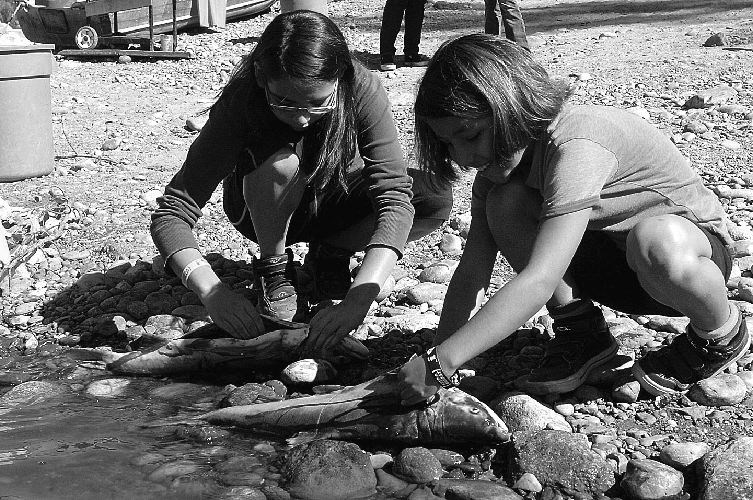For some, spending a day fishing is a good way to relax or commune with nature. But for a group of young people, the summer days spent fishing was about connecting to more than nature, it was about connecting to their cultural roots.
After taking in a recent course in Victoria, angler Edie Frederick has brought the program home to her Lheidli T'enneh band and engaged local First Nations youth in the art of walking the path to their traditional heritage.
Frederick hosted a Rediscovery camp, attended by more than 32 children from the school district and the reserve.
Rediscovery began in 1978 on the shores of the Queen Charlotte Islands, before spreading across the country.
"There was an opportunity and money to be used, so I utilized what I had already learned," Frederick said. That knowledge of the Rediscovery program was combined with the angler's traditional knowledge to create a day camp teaching the young people to fish.
The group mostly operated out of Stone Creek - an area Frederick explained is an ancestral fishing area - where they learned how to cast the fishing nets, collect the fish from them and clean them when brought ashore.
"For most of them, it was a first-time experience," Frederick said. "They'd never ridden a boat, chucked a net or gutted a salmon - let alone seen a salmon. That's how disconnected they are from the culture."
Aside from learning how to catch and clean the fish, the campers were also brought to Huble Homestead to learn how to make butter as well as how to cut and can salmon.
"We're retracing the footsteps of our ancestors," Frederick said.
Aside from being connected to their history, campers also had the opportunity to be connected to each other, with the off-reserve youngsters mixing with the those who live on the reserve.
"It's about them getting to know one another and getting to know the kinship they didn't know. It's an eye-opening cultural experience," Frederick said.
The experience was also a fun one, according to campers Justice Seymour, 9, and aunt Kristine Seymour, 12.
"If we get older and want to catch salmon, we can," Justice said.
Kristine said she wasn't grossed out by the slimy feel of the fish when removing their insides. "It's natural," she said.
Pat Seymour said she was glad to see the girls learning the lost skill. "There's not many people doing this nowadays," she said, adding she learned new things as well from hearing about the girls' experience.
Frederick said she can see more Rediscovery camps - with areas of focus ranging from dugout canoes to hunting to carving - in the future. "The potential is just humongous," she said.

.png;w=120;h=80;mode=crop)

